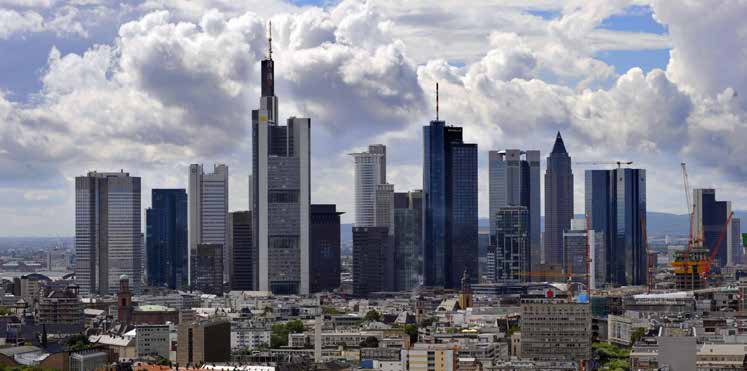A Resolution adopted by the United Nations Security Council (UNSC) highlights INTERPOL’s global role in providing capacity- building and technical assistance to protect critical infrastructure from terrorists.
UNSC Resolution 2341 (2017), endorsed against a backdrop of recent terrorist attacks on critical infrastructure – including international airports in Brussels and Istanbul – underlines how protecting critical infrastructure requires international collaboration, both domestically and across borders.
It also highlights the need to enhance the exchange of operational information, including on the actions and movements of terrorists, with a range of stakeholders – including governmental authorities, law enforcement, foreign partners and private sector owners and operators.
INTERPOL Secretary General Jürgen Stock said the interdependence of infrastructure across sectors and industries, between cyber and physical areas, and across national boundaries, means that the consequences of an attack could be far-reaching.
“One attack on a single point of failure could disrupt or destroy multiple vital systems in the country directly affected, causing a ripple effect worldwide. This creates an appealing target to those intending to harm us. As our cities and infrastructure evolve, so do the weapons of terrorists,” said Secretary General Stock.
“Conflict zone tactics – such as simultaneous active shooter events, armoured vehicle-borne improvised explosive devices or portable Unmanned Aerial Systems with explosive payloads – can be honed for use in our city streets and against key facilities.
“Law enforcement is keenly aware of a tragic paradox: a terrorist incident is often among the best opportunity for learning and improving. Sharing these lessons across borders means reaping the bene ts, without paying that cost. It’s a win-win scenario,” concluded the INTERPOL Chief.
Underlining the need for all relevant actors to prepare, prevent, and respond to such attacks, Mr Stock said these imperatives are central to INTERPOL’s global efforts to promote intelligence sharing, capacity building and resilience in crucial areas.
These include strengthening critical site security with emergency preparedness standards and procedures. For instance, INTERPOL’s Vulnerable Targets unit works with member countries in West Africa to enhance the physical security of laboratories hosting dangerous pathogens and protect them from terrorist attacks.
In addition, INTERPOL continues to urge countries to protect their borders and counter terrorist mobility by sharing information on Foreign Terrorist Fighters (FTFs). Between October 2016 and January 2017, it saw a 63 per cent increase in the number of FTF pro les made accessible in real time through its global criminal information system, with some 13,500 pro les now shared via INTERPOL.
To mitigate the illicit trafficking of radiological and nuclear materials, INTERPOL also works closely with the International Atomic Energy Agency in monitoring and detection training, and cross-border operations.
In response to this call to action the International Association of Critical Infrastructure Protection Professionals (IACIPP) has announced the launch of the www.IACIPP.net, a global extranet designed for critical infrastructure professionals to share information with other members, keep up-to-date with the latest threats, best practice, training opportunities and much more.
Chairman of the IACIPP John Donlon QPM, FSI said “We fully endorse the UN resolution and we have already been working hard to do our part to make that aspiration a reality. The extranet is now live and operational for members.The association is open to all CIP professionals including operator site managers, security of cers as well as first responders, government agency officials, of officers and policy makers. Membership of the association is still free and we encourage colleagues around the world to join us.”
He went on to say: “We look forward to welcoming new members and will be demonstrating the www.IACIPP.net platform for the first time at the Critical Infrastructure Protection and Resilience, Europe conference and expo in The Hague from the 9th to 11th May 2017, where CIP professionals from across Europe and beyond will gather once again to discuss the burning issues.”
Public Private Partnership is one of the key principles of effective critical infrastructure protection and sharing information between intergovernmental bodies, national agencies and making that information available to operators is an essential. Likewise, operators have an obligation to share information with government and other operators if attacks whether physical or cyber are to be thwarted. This is especially true in the case of cyber-attacks, because they are now a constant and ongoing threat so sharing information about the latest cyber threat quickly and effectively is crucial.
The International Association of Critical Infrastructure Protection Professionals (IACIPP) and the www. IACIPP.net extranet work on the trusted partner principle. Trust is not something that can be legislated for or imposed, it has to be developed and is built over time. A “trusted partner” is one who attaches mutual respect, accountability, and success to the relationship.
It is essential to breakdown national barriers and natural commercial rivalries to ensure that the critical infrastructure facilities with which we are entrusted has they highest level of protection that is available and that can only be achieved by standing together and sharing experiences and information.
Source: World security report

